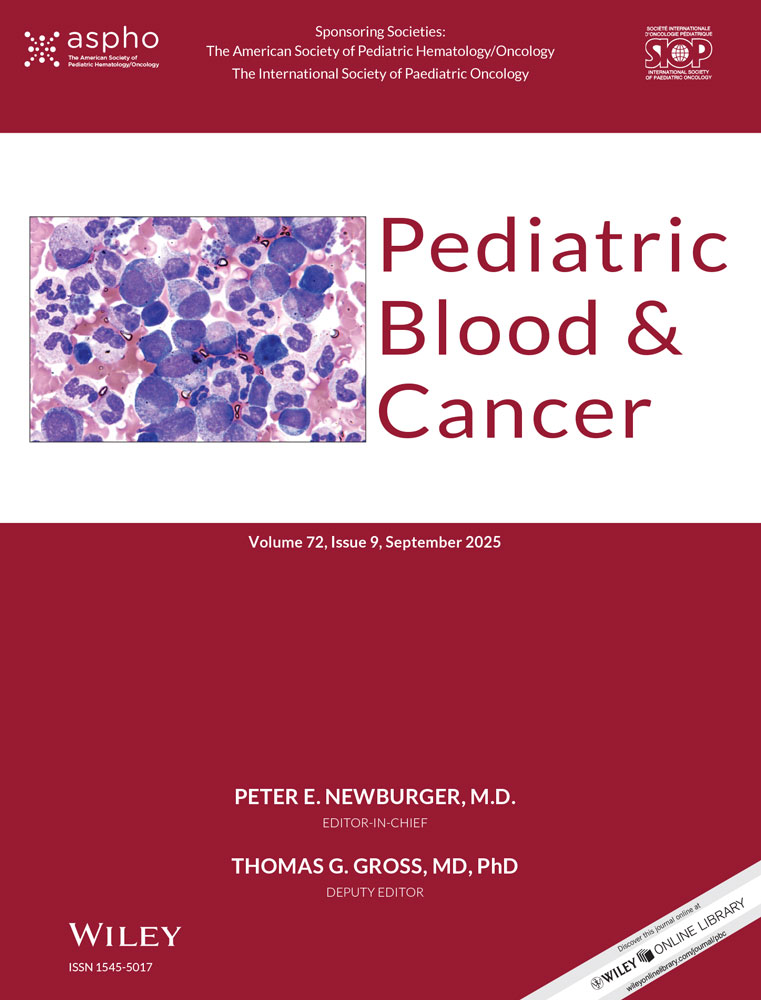Sister Mary Joseph's nodule as presenting sign of a desmoplastic small round cell tumor
Abstract
Umbilical metastases, also named Sister Mary Joseph's nodules, are well documented in the adult population and most often represent an underlying intra-abdominal malignancy, usually a carcinoma of gastrointestinal or gynecologic origin. They are indicative of widespread abdominal disease and are associated with a poor prognosis. An extensive review of the literature reveals only two such presentations in the pediatric population. A 14-year-old male presented with an umbilical mass, which was found to be a metastatic lesion of a desmoplastic small round cell tumor (DSRCT) of the abdomen. The diagnosis of an intra-abdominal malignancy, most commonly a DSRCT, should be considered in the presence of an umbilical mass in a child. Pediatr Blood Cancer 2008;50:388–390. © 2006 Wiley-Liss, Inc.




